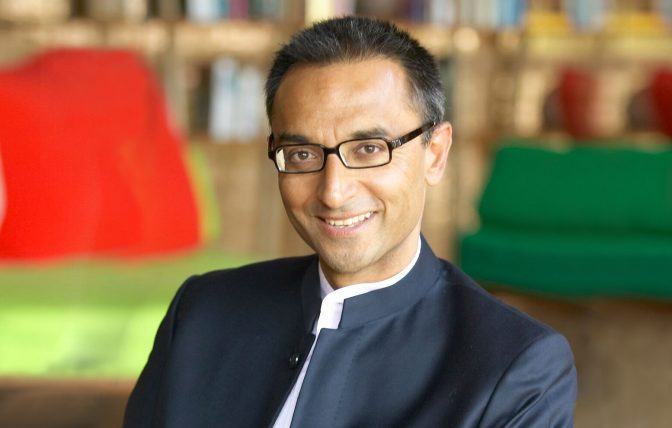


It has been a torrid few days in the Maldives’ battle against COVID-19: we’ve seen spikes in new cases and, unfortunately, the country’s first victim. In much of the rest of the world, though, the news has been more positive. Many countries, which are also big tourism markets to the Maldives, have flattened the curve and slowly started opening back up.
Life is starting to resemble a sort-of-normal in places such as Austria, Switzerland and Germany (although there is still no date for when international borders will reopen). Hopefully, the Maldives will flatten its curve over the next couple of weeks and bring the virus outbreak under control. This begs the question: what might the ‘new normal’ look like here?
There are many unique aspects to the virus. One of the most unexpected relates not to epidemiology, but to politics. In every global crisis since the Second World War, the United States led the global recovery effort. But under President Trump, America has turned its back to the world, and shunned international co-operation. Under Obama or Bush, the world could have sat back and allowed the superpower to lead efforts to combat the virus, and set international protocols about air travel and reopening borders. In the absence of US leadership, the Maldives, alongside everyone else, will have to figure this out on their own.
With travel and tourism accounting for a huge slice of the Maldivian economy and generating most jobs, clearly a ‘new normal’ has to include the re-opening of the country to tourists. But how can this be done safely?
We will have to work closely with other countries and organisations. This means striking bilateral agreements with our major tourism markets in Western Europe, India, and China, as well as working with international tourism bodies such as the United Nations World Tourism Organization (UNWTO) to establish a way forward. One of the tricky issues will be establishing new protocols on how people can travel, how they are screened upon arrival, and how they can avoid the requirement to quarantine for two weeks when they return home.
For the Maldives, testing and screening passengers upon arrival and departure will have to become part of our new normal; it is difficult to see how we can reopen safely without it. This will pose challenges and require strict new protocols at the airports, but testing will become progressively easier as test kits become quicker, cheaper, and more reliable.
Hygiene will become a major consideration, or ‘qualifier’, for holidaymakers. Nobody wants to stay in a dirty hotel room, but in the COVID-19 era, hygiene will take on a whole new meaning. Travel and tour operators will compete fiercely on providing a safe, hygienic holiday, where social distancing can be maintained. Last week brought news of a partnership between Bureau Veritas, a testing, inspection and certification company, and Accor, a major hotel chain, which will establish standards for hygiene in hotel operations.
Other hotel companies are bound to follow suit, tying up with inspection agencies in order to reassure would-be travellers that their hotel rooms, restaurants and communal areas are properly sanitized, and the property isn’t overcrowded.
In an era where guests are as preoccupied about safety and hygiene as they are about the quality of the food, Maldivian resorts are well placed. The country is one of the few to operate a policy of ‘one island one resort’ – a geographic advantage that makes it much easier to prevent and contain a coronavirus outbreak, because each resort can strictly control who steps onto their island. In fact, the English word ‘isolation’ and the Italian ‘isola’ both derive from the Latin ‘insula’, which means island. Island = isolation. Perhaps the country’s tourism strapline The Sunny Side of Life needs to change to reflect the safe, isolated nature of its resorts.
At Soneva, we’ve been thinking through our own ‘new normal’. We believe that customers’ fears over safety will be allayed by a rigorous new testing regime. Soneva plans to give everyone who arrives at our resorts a quick coronavirus test. After completing the test, guests will be escorted straight to their villa, or staff to their host accommodation, until the result comes through. If the test is negative, the guest or host can carry on as normal. If the test is positive, we will follow government rules, which likely means moving people to an isolation facility – which are fortunately some of the world’s most luxurious, located in resorts.
If such a testing policy was introduced across the Maldives, it will reassure tourists that the country is safe to visit, and also reduce the likelihood of future virus outbreaks. Robust testing also provides the Maldives with the opportunity of creating something truly unique: virus free resorts.
By testing everyone who comes onto an island, we can ensure that everybody on it is clear of the virus. This would render social distancing, and no-touching rules, unnecessary within that particular island. Maldivian resorts could thus transport guests back to the heyday of 2019, without constant coronavirus reminders spoiling their holiday. This could be a major ‘differentiator’ for Maldivian tourism compared to other holiday destinations.
For the rest of the world, largely made up of bigger countries adjoined to each other by land borders, it is almost impossible to create virus-free havens. The threat of infection will always lurk in the building across the street, the hotel staff who travel to work each morning on crowded public transport, or from the neighbouring country with a porous border.
The ‘New Normal’ in the Maldives will be different to the normal life we enjoyed before COVID-19. But the country remains extremely lucky because of its unique geography. If the right testing protocols are established, the Maldives will enjoy a significant competitive advantage – something that could underpin its future prosperity, even during these troubled and turbulent times.
About the author: Sonu Shivdasani is the CEO and Co-Founder of luxury resort chain Soneva.